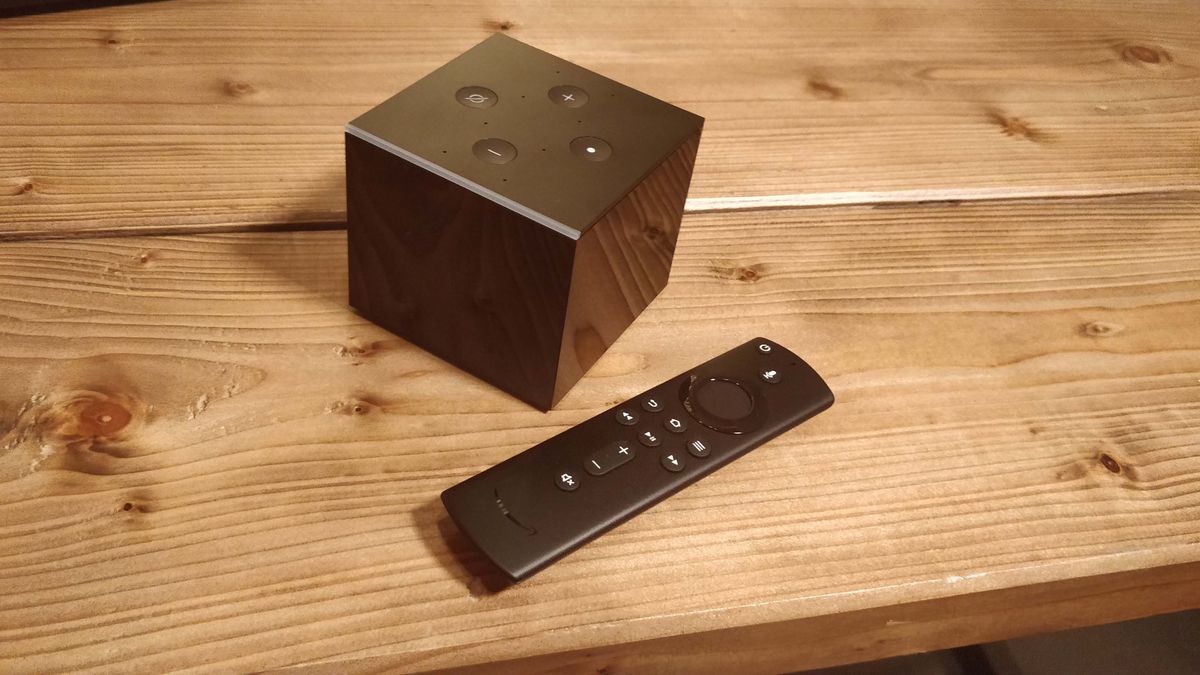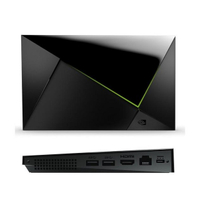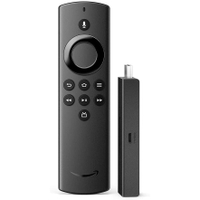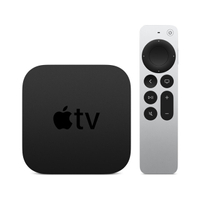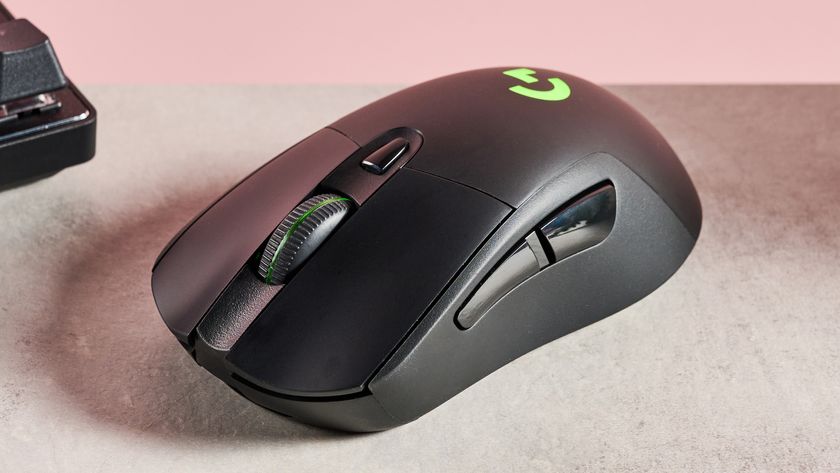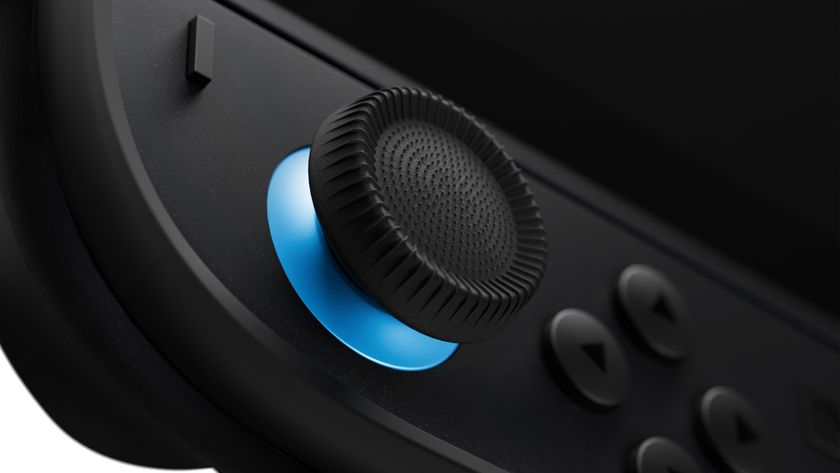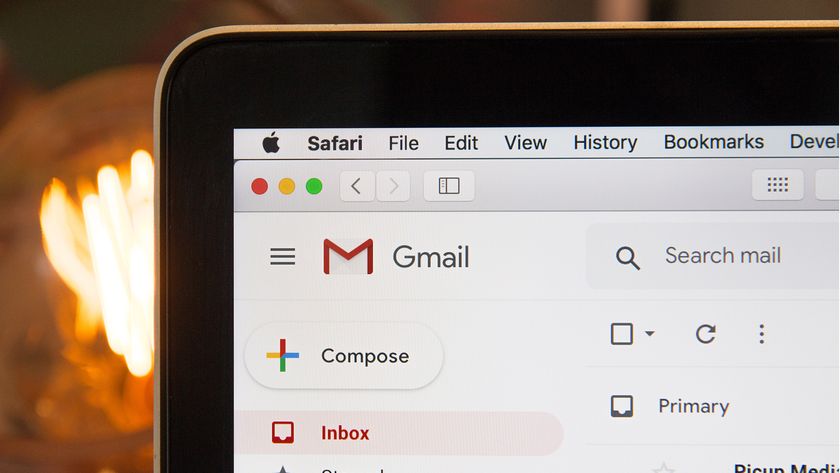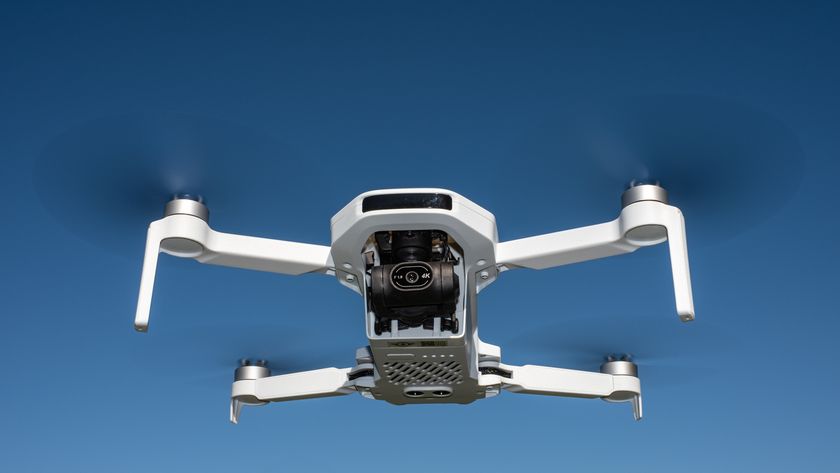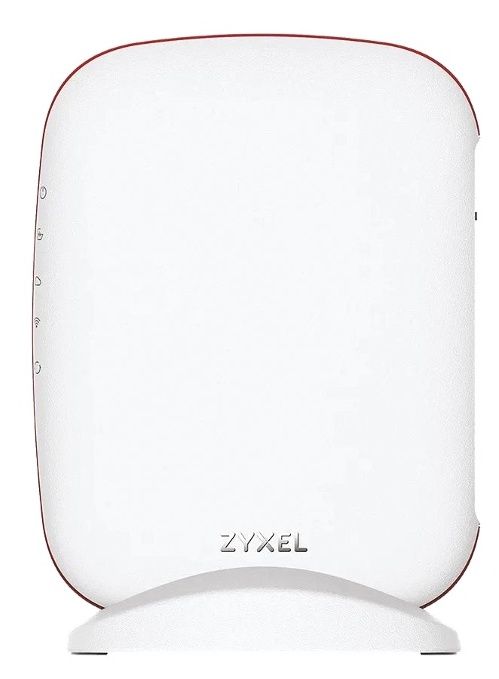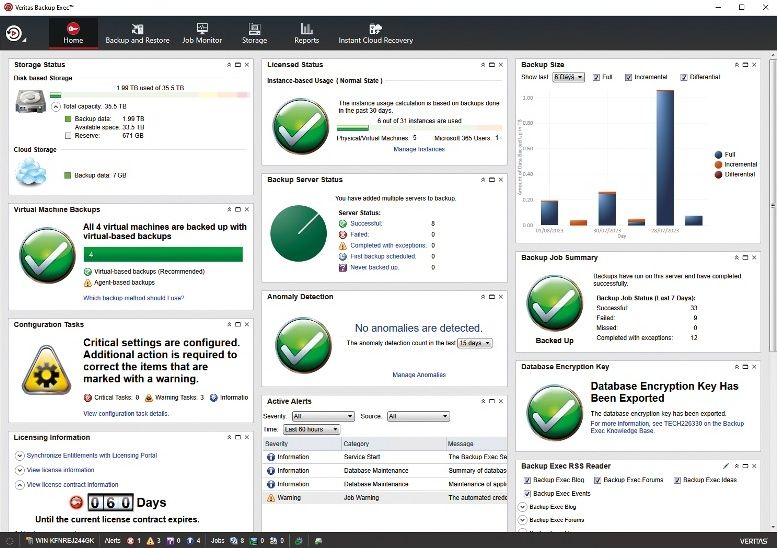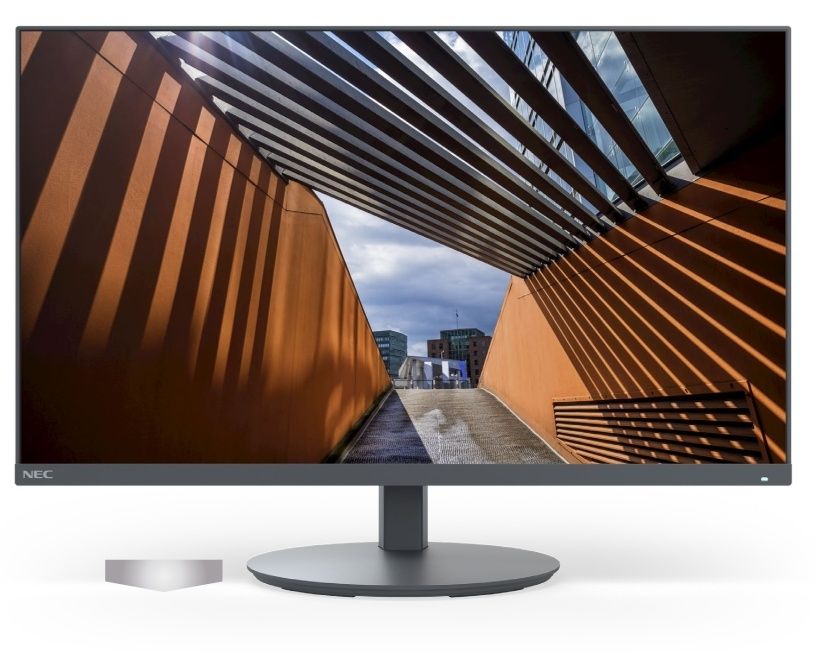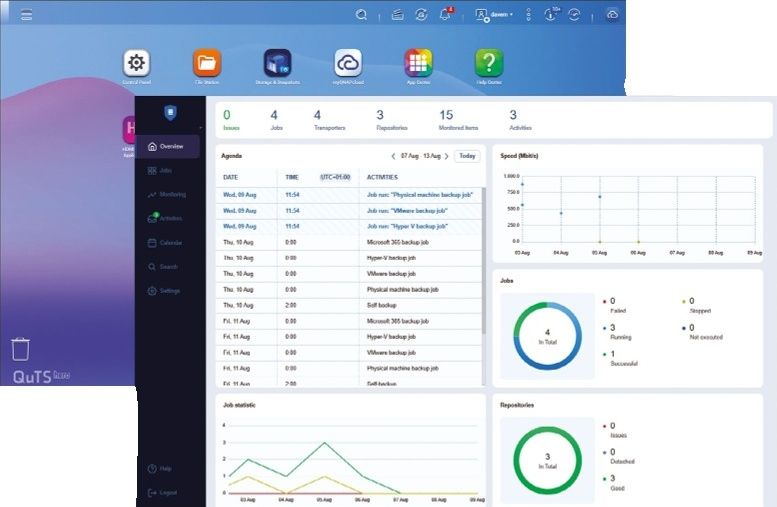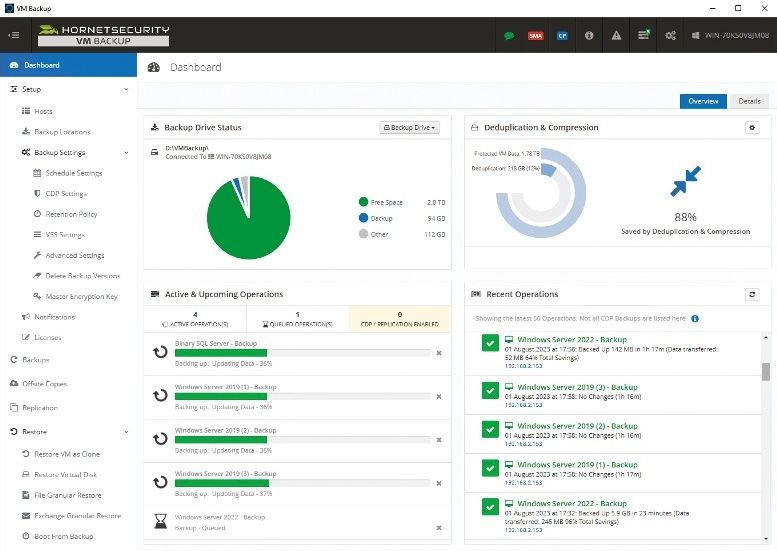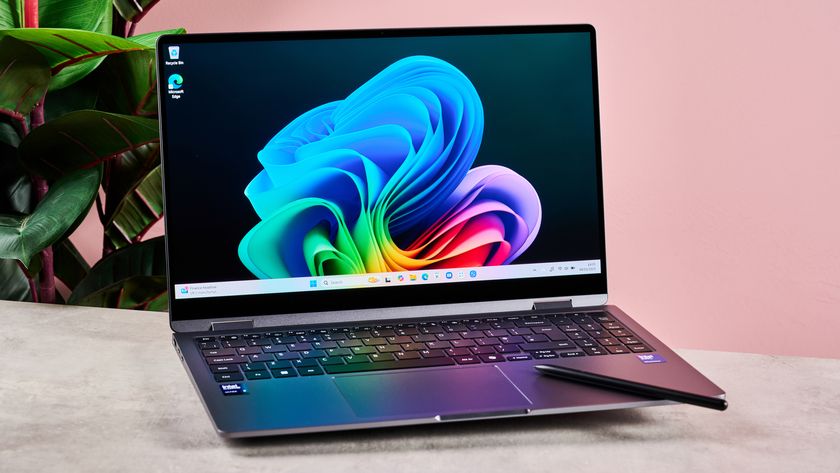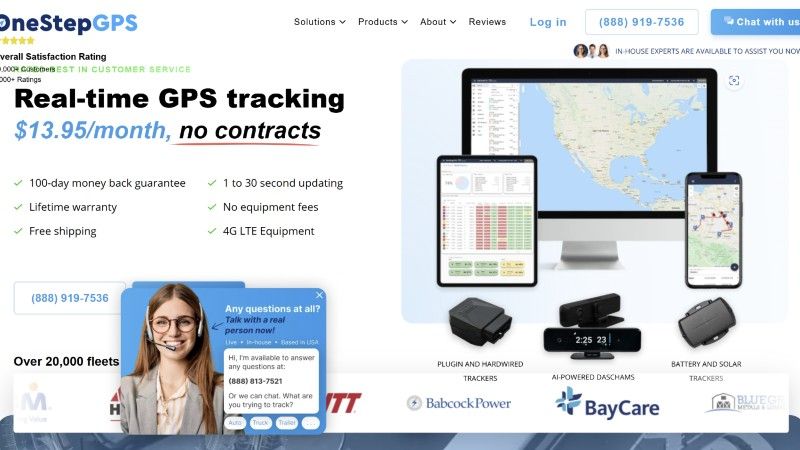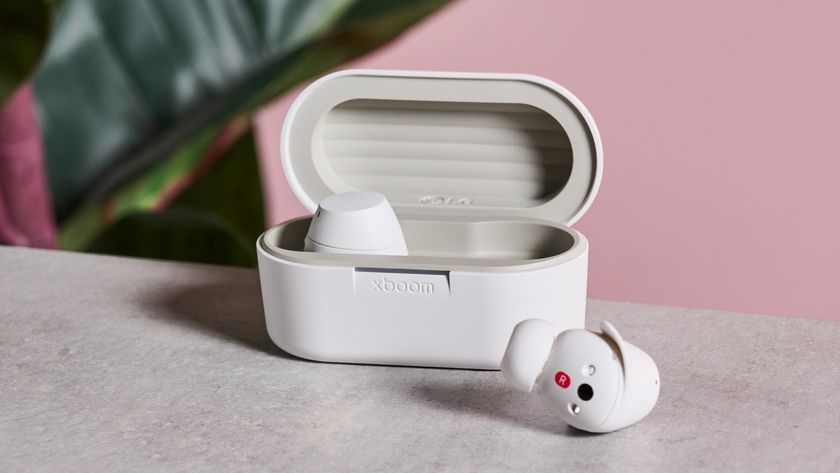TechRadar Verdict
The Amazon Fire TV Cube (2nd Generation) is one of our favorite Amazon streaming devices. It's better in so many ways than the Amazon Fire TV Cube that was released in 2017. The processor upgrade and inclusion of Dolby Vision are great new additions and, in spite of a few shortcomings, help solidify the Cube's spot as one of the best streaming players to be released this year.
Pros
- +
4K HDR playback
- +
TV/AV control center
- +
Includes a Voice Remote
- +
Native YouTube app
Cons
- -
HDMI cable not included
- -
Home screen is mostly Amazon content
- -
Language recognition isn't perfect
Why you can trust TechRadar
The Amazon Fire TV Cube puts Amazon firmly back on the map when it comes to the battle of the streaming devices. The latest Fire TV Cube is faster, supports the highest-end AV formats, including Dolby Vision and Dolby Atmos, and it has YouTube.
Although that last point might sound pedestrian, remember that for years a feud between Amazon and Google prevented the world's largest streaming and video service from appearing as a native app on Amazon's streaming devices. For a long time, this came as a huge blow to the family of devices back in 2017. That’s maybe why Amazon went to great lengths to make sure that problem has been resolved this time around.
Dimensions: 86.1 x 86.1 x 76.9 mm
Weight: 465g
Processor: Hexa-core (Quad-core @ up to 2.2 GHz + Dual-core @ up to 1.9 GHz)
Storage: 16 GB internal
Memory: 2 GB
Ports: HDMI, power, micro-USB, wired infrared support
Audio: Dolby Atmos, 7.1 surround sound, 2 ch. stereo and HDMI audio pass through up to 5.1
Content formats: Video: Dolby Vision, HDR 10, HDR10+, HLG, H.265, H.264, VP9 Audio: AAC-LC, AC3, eAC3 (Dolby Digital Plus), FLAC, MP3, PCM/Wave, Vorbis, Dolby Atmos (EC3_JOC), Photo: JPEG, PNG, GIF, BMP
Output resolution: 2160p, 1080p and 720p up to 60 fps
The Amazon Fire TV Cube goes above and beyond in terms of performance, and in the flexibility in controlling both your home theater, as well as your smart home all via your voice.
Not only does the Fire TV Cube support 4K HDR, but it also supports one of the best versions of the format. And not only does it have Alexa built-in, but it's a visual version of the assistant, which is able to display the lyrics to your favorite songs and tell you who's on-screen during a movie. When it works, it feels downright futuristic; when it doesn't, it's a letdown, but there's always the remote to help fill the gaps in Alexa's skills.
Although Alexa doesn't always work as advertised, this is still the best player Amazon has made to date and would be a welcome addition in any home. That's why it's one of our top picks in our best streaming services guide. Read on for our full Amazon Fire TV Cube (2nd Generation) review.
Amazon Fire TV Cube (2nd Generation): price and availability
- It costs $119.99 / £109 / AU$160
- Often heavily discounted
The Amazon Fire TV Cube cost $119.99 / £109 (around AU$160) at launch, which was way back in October 2019. Because it's a few years old, the Fire TV cube is often reduced, especially in Amazon's sales. If you find one during a deal, you might snap it up for nearly half that price.
That means it's hard to compare the price of the Amazon Fire TV Cube against other streaming devices because it'll totally depend when you're buying one.
But what's important to know is it's significantly cheaper than some of the more high-end streaming devices, check out our Apple TV 4K (2021) review ($179 / £169 / AU$249) and Nvidia Shield TV Pro review ($199.99 / £179.99 / AU$399.95) for our top picks.
Of course, the Amazon Fire TV Cube is more expensive than Amazon's streaming sticks—but not by much if you find a deal, making it excellent value. Look at our Amazon Fire TV Stick 4K Max review for the best stick-shaped streamer, which costs $55 / £55 / AU$99.
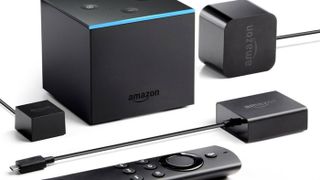
Amazon Fire TV Cube (2nd Generation): design
- Looks similar to predecessor
- Voice commands without a remote
While Amazon made a number of improvements to Amazon Fire TV Cube's software and internal hardware, not much has changed about the outer shell—it's still an unassuming black cube with an LED bar along the top. It's not as unassuming as some other streaming video players that hide behind the TV, but it does give your entertainment center a slightly futuristic vibe.
On the top of the Cube are four control buttons for muting, raising and lowering the volume and summoning Alexa, though the latter is a bit unnecessary.
Of course, simply having the option to shout voice commands at a small, box-shaped player without a remote in hand is the unique selling point of the Amazon Fire TV Cube, and with its eight far-field microphones, the Fire TV Cube is incredibly good at picking up what you’re putting down—as good or perhaps even better than the Amazon Echo Show or Amazon Echo are at the task.
Spin the Fire TV Cube around to the back and you'll find an HDMI port, microUSB, an IR extender and a power connector. There's not much to say about the microUSB or the power connector, both of which work as advertised, but there's something to say about how the Fire TV Cube handles HDMI.
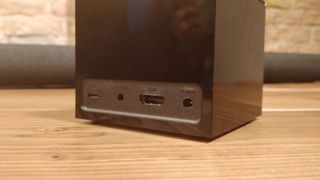
The good news is that the Fire TV Cube comes with HDMI CEC, that feature that allows you to control your devices over HDMI and IR commands. This allows you to raise the volume of the TV using the Amazon Fire TV Cube remote, and use Alexa to turn and off any number of devices in your entertainment center.
The bad news is that the Amazon Fire TV Cube doesn't come with an HDMI cable... which feels a little cheap for a device that costs over $100. Heck, it's not very long, but even the $35 Roku Express comes with an HDMI cable, so for it to be missing here feels like a pretty big misstep.
The only issue with the HDMI CEC and IR control feature is that you’ll need to be rather judicious when integrating the Fire TV Cube into your home theater setup—it can’t be too close to your speakers lest they overwhelm the built-in microphones, but still needs to be within line of sight for your soundbar, AVR and TV, as it will need to control those via a multi-directional infrared blaster and HDMI CEC.
While that may sound like a trying process, it can be done relatively quickly and once you’re through it, you’ll have a competent control center for your home entertainment setup. Alexa, through its technological wizardry, can change the input of your TV, raise or lower the volume of your soundbar and change the channel on your set-top box using only voice commands, and while the result isn’t revolutionary, it helps make the Fire TV Cube a comprehensive package and one we found ourselves enjoying—even when Alexa, as smart as it's become, let us down.
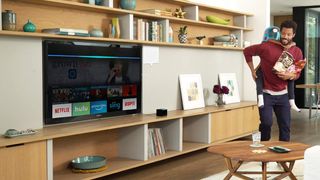
Amazon Fire TV Cube (2nd Generation): content
- Lots of suggested content and Prime TV shows
- Other apps that are added regularly
If you don't mind being inundated with Amazon content, the Amazon Fire TV Cube is great: The home screen has row after row of suggested content—from Amazon Prime TV shows and movies to recommended shows and movies you can rent from Amazon. Yes, there's now a featured row at the very top of the home screen, your apps on row two and sponsored content on row three, but the vast majority of your home screen beneath the first three rows is dominated by Amazon's own content.
Of course, you could argue that the Fire TV Cube's focus on Amazon content makes sense, given that most folks who'd buy one probably have an Amazon Prime subscription already, but it doesn't change the fact that Amazon is purposely pushing its own content above its competitor's, similar to Apple TV.
Thankfully, there are actually a number of award-winning shows and movies on Amazon's service that are worth watching (see our best Amazon Prime shows list for recommendations!) like The Marvelous Mrs. Maisel and Fleabag that do justify all the attention Amazon is directing towards them.
And while Amazon Fire TV Cube heavily favors Amazon's own streaming service, it's still possible to get a number of other streaming apps including Netflix, HBO, Starz, Hulu, PlayStation Vue and Crackle, alongside smaller services like The CW, NFL Network, AMC and more, with new services added regularly.

Speaking of regularly added services, the big new addition to the Amazon Fire TV's lineup is YouTube—which recently returned after being away for over a year. Having YouTube back means having access to the service's ever-growing library of shows, plus more viral videos, streamers and vlogs than you can shake a stick at.
One page to the right of the home screen is the new Live section that shows you what's playing right now either on Amazon Prime or on a proper cable alternative like Sling TV, PlayStation Vue or YouTube TV. Here you'll find content like the PGA Masters or Thursday Night Football in the US, which make the player more valuable to cord-cutters and cord-nevers.
Another great feature for cord-cutters is the addition of free IMDB TV content to the home screen in the US. You won't always find the best or newest content here, but it's free with ads so we can't complain too much.
In terms of audio streaming, Amazon Fire TV Cube supports Spotify, but you'll probably end up using Amazon Music or Amazon Music Unlimited the most. The former has a few million songs and is available with every Amazon Prime subscription, while the latter will run you a few dollars extra per month but offers tens of millions of songs from more obscure artists instead.
Interestingly, the Amazon Fire TV Cube supports Casting as well... but it wasn't something we could get working before we published our review. It's something we'll continue to test in the coming weeks and months.
Lastly, it’s worth noting that Amazon Fire TV Cube has the ability to play some light games as well. The games are usually akin to what you’d find on the App Store or Google Play Store (which makes sense as Fire TV OS is a variation of Android), but Amazon’s offerings are smaller in number and lesser in quality to what you’d find on, say, the Apple TV 4K or Nvidia Shield, both of which offer high-quality (but still ephemeral) games.

Amazon Fire TV Cube (2nd Generation): performance
- Fantastic performance
- Dolby Vision makes content look great
The Fire TV Cube has always been rock-solid in terms of performance, but the latest version introduces a number of upgrades that make it even faster.
For example, the original Fire TV Cube used a Quad core ARM Cortex-A53 1.5GHz CPU, Mali-450 MP3 GPU and Amlogic S905Z SoC to produce stunning visuals and fast load times throughout the OS, but that's been upgraded to an ultra-powerful hexa-core processor that can play Dolby Vision and 4K Ultra HD content at up to 60 fps.
Going from a show on Netflix, back to the home screen and into a movie on Amazon takes a matter of seconds, with basically zero pop-in issues along the way. In fact, thanks to 802.11ac Wi-Fi antenna and with connections higher than 15mbps, videos probably won't even need to buffer—they'll just start playing as soon as you select them.
The result is that content looks gorgeous, especially TV shows and movies in 4K HDR. Pop on All or Nothing: Manchester City or The Grand Tour, and you’ll be treated to a visual showcase of what the Fire TV Cube can do: The opening trailer for The Grand Tour shimmers as scenic vistas and million-dollar cars race past the screen, while the cerulean blue of Manchester City’s jerseys radiate ravishing color tones.
Despite being a bit harder to find, the same could be said for Dolby Vision content, which also looks great. Amazon recommends starting with Stranger Things and Our Planet on Netflix, and Tom Clancy’s Jack Ryan on Prime Video—all of which show off the expanded color gamut of the format and, depending on your TV, better contrast, too.
Because HDR and Dolby Vision really bring out the best and brightest colors in your favorite shows and movies, it's best to watch content in native 4K HDR wherever you can find it. To help with that very thing, the Amazon Fire TV home screen has a 4K HDR row, so it's worth taking advantage of it.
What about HD/SDR content? Well, the Fire TV Cube does a good job working with your 4K TV to upscale them for the higher resolution, but you'll still see a difference. Colors don't look as vibrant in HD/SDR and black levels suffer, too.
Of course, it's worth saying that, if you want to watch native 4K content you actually need to own and use a 4K HDR TV. This sounds silly and yet there will be a number of people who buy an Ultra expecting 4K HDR performance on a 1080p TV. Trust us, it happens. You’re also going to need that 15Mbps or higher connection to watch videos in 4K HDR. You might be able to scrape by with a little less than that, but if the Fire TV Cube detects a much slower connection speed, it won’t feed you 4K content.
Caveats aside, this is one of the speediest—and most powerful—players on the market, rivaling both Apple and Roku's top-tier products.
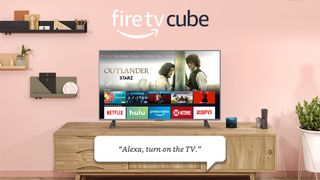
Amazon Fire TV Cube (2nd Generation): Alexa
- Alexa is a versatile (but imperfect) personal assistant
- Voice assistant makes some mistakes
Just as important as solid video reproduction skills is the Amazon Fire TV Cube’s ability to host Alexa, Amazon’s smart assistant. While this feature amazed us on the original Fire TV Cube, the novelty has begun to wear off now and we can see it more clearly for what it is: a versatile (but imperfect) personal assistant.
If you have a compatible smart camera, you can use the Amazon Fire TV Cube to show you a live video stream of what your camera is seeing. If you want restaurant recommendations or movie times, those too will pop up on the screen, alongside their ratings and distance from your home. Alexa could certainly do all of this via voice, but having a screen to display visual information radically improves the usability of the system.
If you have drop-in or calling setup, you can now use those features with the Amazon Fire TV Cube, which is a nice addition, and Alexa can display pictures and prices of items on the Amazon store—which is great if you're the home shopping type.
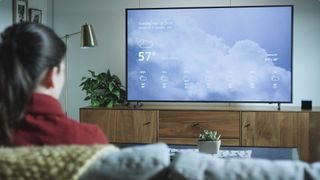
Unfortunately, however, for all its advancements in the last few years, Alexa still requires precise language to operate: Asking Alexa to start an episode requires you to say things like 'select' rather than 'start', 'play' or 'begin'. This sounds like one specific, isolated issue but it's problems like these that prevent the streaming device from becoming the ultimate hands-free device. You either need to say it in Alexa-speak or pick up your remote and do it yourself.
It can be so bad in fact, that at Amazon's press conference for the new model, the voice assistant still struggled to understand commands, taking more than one attempt to find the service or episode being looked for. (We were treated to such reassuring words as "It usually works.")
All of this happens on top of Alexa’s usual misinterpretations and foibles. Asking questions outside of basic trivia can still often lead to the feared response of “I don’t know how to help with that yet” and sometimes even total non-responses to inquiries about simple directions. It’s not that Amazon’s competitors—Google Assistant and Siri—don’t have these problems, they do, but they feel more pronounced here than on any other platform.
Amazon is obviously working on its smart assistant all the time, but some more headway needs to be made before being beyond criticism.
Conclusion
The Fire TV Cube is our favorite Amazon streaming device to date.
It's better than the Amazon Fire TV dongle that was released in 2017. That's because the Fire TV Cube not only offers hands-free controls for video playback, but can also do all the heavy lifting of controlling your home, too.
Add to that the simple-but-smart visual cues Amazon has added for Alexa’s basic skill set and you have a very strong contender for the best streaming video player. The processor upgrade and inclusion of Dolby Vision for the new model helps solidify that opinion, and is well-worth the extra $20.
Yes, technically speaking, you could do almost everything the Fire TV Cube does with an Amazon Echo Dot and Amazon Fire TV Stick 4K, but hexacore processor-powered box moves faster and creates fewer frustrations. It's cliche to say, but the Fire TV Cube is more than the sum of its parts.
Also consider...
Nvidia Shield TV Pro
If you're looking for a bump in terms of performance, the best streaming device on the market is the Shield TV Pro from Nvidia. It’s unrivalled when it comes to its 4K HDR streaming capabilities, has wide app support thanks to its Android TV foundations, and is littered with potential for gamers. However, you will have to pay a premium for this high-end device.
Read our Nvidia Shield TV Pro review
Amazon Fire TV Stick Lite
If you don't need a streaming device and would prefer a simple, budget option, check out the Fire TV Stick Lite instead. This HD streamer won't offer sparkling 4K detail, but you do get the basics of HDR / HDR10+ support, as well as 60fps playback for smooth action in a movie blockbuster or sports match.
Read our full Amazon Fire TV Stick Lite review
Apple TV 4K
If you prefer Apple to Amazon, try the Apple TV 4K. This is a slick streaming device, which can play 4K video in HDR and Dolby Vision, and supports high-frame-rate HDR to make fast action and sports look smooth and clear. The revamped Siri remote is also a pleasure to use.
Read our Apple TV 4K (2021) review
- First reviewed October 2019.
Nick Pino is Managing Editor, TV and AV for TechRadar's sister site, Tom's Guide. Previously, he was the Senior Editor of Home Entertainment at TechRadar, covering TVs, headphones, speakers, video games, VR and streaming devices. He's also written for GamesRadar+, Official Xbox Magazine, PC Gamer and other outlets over the last decade, and he has a degree in computer science he's not using if anyone wants it.
